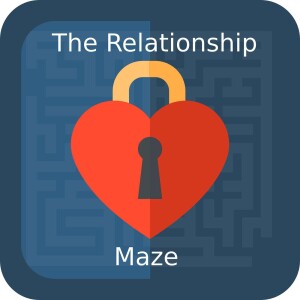
There's No Shame in Feeling Shame - Healthy and Toxic Shame
 2023-05-22
2023-05-22
Send us a text
In today's episode we talk about shame. Shame can be one of the most difficult feelings we can experience as it goes to the core of our notion of self. Talking about something that we experience as shameful makes us feel intensely vulnerable and exposed. We can experience shame as an attack on our core self.
We distinguish between healthy feelings of shame and unhealthy, chronic and toxic shame which is often the underlying emotion of a wide range of disturbing experiences: low self-worth, anxiety, depression, isolation, addiction, self-harm, issues with uncontrollable anger and many more.
Shame has a prosocial function; it is important for facilitating social bonds and norms and enables us to notice when we have transgressed a social norm, have made a mistake or have crossed a boundary. We can make amends and our feeling of shame will dissipate very soon. Milder versions of shame are feeling embarrassed or guilty. With guilt we are more likely to focus on our wrong behaviour which is different from a stronger version of shame where we focus on our self as being flawed.
With chronic shame we feel bad about who we are, rather than what we did. Chronic shame can get us into a cycle of shame where we an association evokes a previous experience of shame, which activates negative thoughts and feelings. This then get our defenses going (e.g. avoiding or attacking) and will lead to inappropriate behaviour such as self harming, drinking or isolating for too long. These behaviour in turn will make us feel more shame and the cycle starts anew.
Chronic, toxic shame can develop in response to painful childhood experiences, for example always being negatively compared to a sibling, being bullied at home or school, guarding a family secret like alcoholism, being poor or being constantly being disproved of.
In the podcast we talk about what you can do to develop more shame resilience, getting less triggered or not at all triggered by earlier associations that evoke shame. In order to manage shame more effectively, it will need to be recognised and understood first.
The Relationship Maze courses:
What is your argument style? Find out in our short quiz. You can find a link on our website: https://therelationshipmaze.com.
Struggling with a lot of conflict and arguments in your relationship? Learn about communicating effectively and addressing common relationship problems in our Stop Arguing, Start Loving mini course: https://therelationshipmaze.com/relationshipconflictvsl2.
Learn everything you always wanted to know about building and maintaining loving relationships in our comprehensive course The Relationship Maze, starting with understanding yourself in relationship
Contact us for information about individual counselling/psychotherapy, couples therapy, clinical supervision or CPD training.
Tom's website
Angela's website
Struggling with a lot of conflict and arguments in your relationship? Learn about communicating effectively and addressing common relationship problems in our Stop Arguing, Start Loving mini course.
Learn everything you always wanted to know about building and maintaining loving relationships in our comprehensive course The Relationship Maze, starting with understanding yourself in relationships to understanding your partner and understanding what makes for a successful relationship. We look at common causes of relationship problems and offer solutions. Learn how to address relationship problems and questions without breaking up.
More Episodes
 2021-06-13
2021-06-13
 2021-06-06
2021-06-06
 2021-05-31
2021-05-31
 2021-04-25
2021-04-25
Create your
podcast in
minutes
- Full-featured podcast site
- Unlimited storage and bandwidth
- Comprehensive podcast stats
- Distribute to Apple Podcasts, Spotify, and more
- Make money with your podcast
It is Free
- Privacy Policy
- Cookie Policy
- Terms of Use
- Consent Preferences
- Copyright © 2015-2024 Podbean.com




